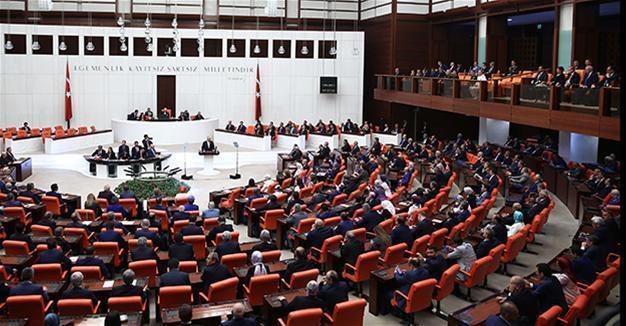Turkey extends state of emergency by further three months
ANKARA
 The Turkish parliament extended the ongoing state of emergency on July 17 by three more months starting from July 19, its fourth such extension after a coup attempt last July.
The Turkish parliament extended the ongoing state of emergency on July 17 by three more months starting from July 19, its fourth such extension after a coup attempt last July.The National Security Council (MGK) advised extending it on July 17.
A bill to extend the state of emergency was immediately submitted to the Turkish parliament during a MGK gathering even before a cabinet meeting on the same day.
The parliament debated extending the ongoing state of emergency on late July 17. The ruling Justice and Development Party (AKP), however, had a comfortable majority to pass the bill.
Turkey declared a state of emergency on July 21, 2016, after the failed coup attempt on July 15, 2016.
The government says the reason to maintain the state of emergency is to fight against terror threats, primarily against the Fethullahist Terrorist Organization (FETÖ), which it accuses of staging last year’s coup attempt.
To enact the state of emergency, the government must see serious indications of widespread violence that could interfere with Turkey’s democratic environment or its citizens’ basic rights and freedoms as established by the constitution.
During the state of emergency, the cabinet has the right to issue statutory decrees under the president of the republic without regard to routine procedures and restrictions in Article 91 of the country’s constitution.
These decrees are first published in the Official Gazette and then submitted to parliament for ratification.
Meanwhile, the main opposition Republican People’s Party (CHP) criticized the government for the extending state of emergency, arguing that it has polarized the country.
The state of emergency has merely harmed the economy and polarized the entire population of Turkey, CHP group deputy Engin Altay told reporters on July 17.
The government behaved unjustly toward people instead of holding the real coup plotters to account, he stated, adding that the country urgently needs normalization.
“If one wants to hold the July 15 plotters to account, they have to frankly reveal the political leg of the coup,” Altay said.
Some 50,000 people have been arrested, more than 150,000 dismissed or suspended from jobs in state institutions while hundreds of media outlets, associations, and businesses have been shut down over alleged ties to terror organizations with decree laws issued under the state of emergency.
















